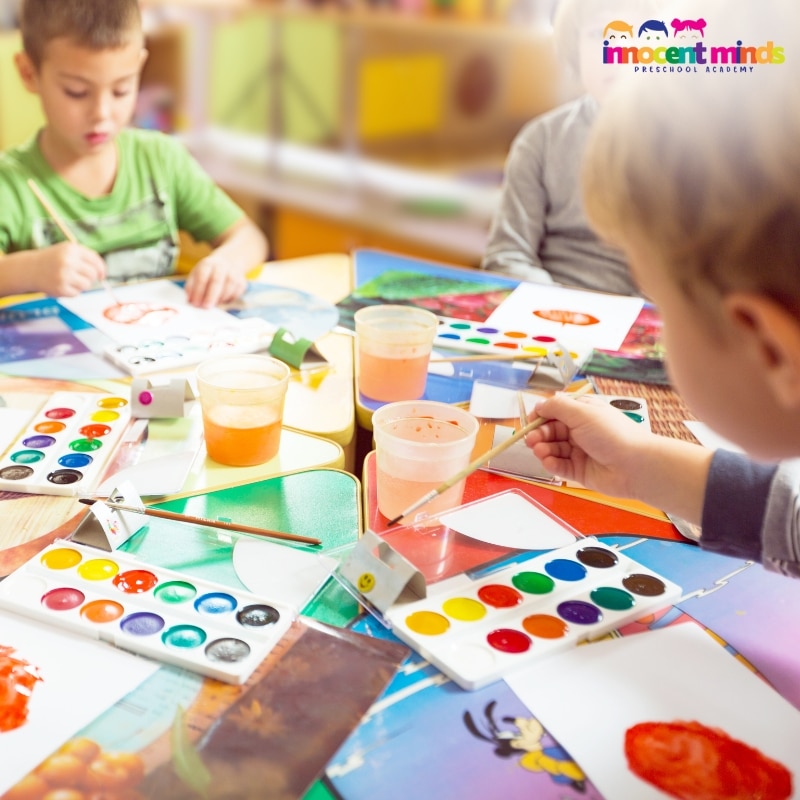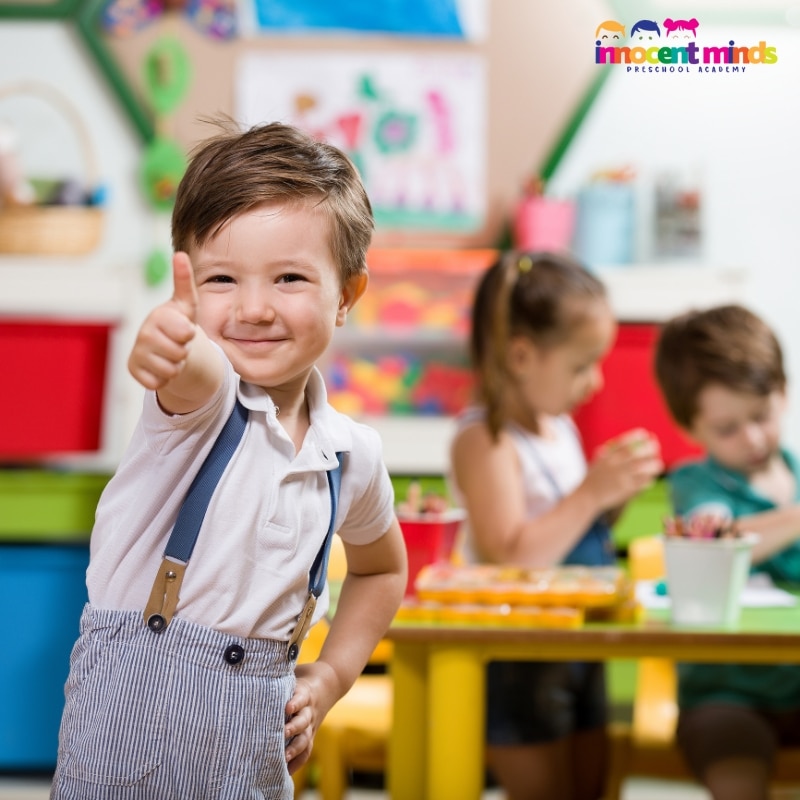Preschool Programs
At Innocent Minds, we offer engaging and structured preschool programs tailored for children in Punchbowl and Yagoona. Our focus is on early childhood development, ensuring that your child gets the best pre-k education through play-based and structured learning. We provide a nurturing and stimulating environment where children can develop social, cognitive, and motor skills while preparing for formal schooling.
Our experienced educators create age-appropriate learning experiences that foster creativity, curiosity, and confidence. We believe that a strong foundation in early education sets the stage for lifelong learning and success. Enrol your child today at Innocent Minds and give them the best start to their educational journey.
Qualified & Passionate Preschool Educators
At Innocent Minds, our preschool educators are highly qualified and passionate about fostering a love for learning in young children. Our team is dedicated to providing a safe, engaging, and nurturing environment where children can explore and develop their potential.
- Certified in Early Childhood Education and Care (CHC50121)
- Specialists in preschool education with 25 years of experience
- Focused on individual learning styles and personalised attention
- Encouraging problem-solving, social interaction, and creativity
Our structured curriculum aligns with the Early Years Learning Framework (EYLF), promoting play-based learning, literacy, numeracy, and social development. By choosing Innocent Minds, you provide your child with expert guidance, quality resources, and a well-rounded educational foundation.


Pre K Programs for Holistic Development
Our Pre-K Programs are carefully designed to prepare children for primary school while fostering a love for learning. We follow EYLF which focuses on cognitive, emotional, and social development through play-based learning. Engaging activities such as storytelling, music, and art encourage creativity and critical thinking, ensuring a well-rounded early education.
Play-based activities form the foundation of our approach, helping children refine motor skills and coordination while learning essential early literacy and numeracy concepts in an interactive way. Through group activities and collaborative play, children develop strong social skills, including teamwork, communication, and problem-solving.
At Innocent Minds, we prioritise emotional resilience by helping children understand and manage their feelings, fostering confidence and independence. Enrol your child today and give them the best start to their education journey!
What Are the Benefits of Preschool Learning Programs?
Preschool learning programs provide essential early childhood education that shapes a child’s future. Here are some key benefits:
Social Skills Development – Encourages teamwork and communication
Cognitive Growth – Enhances problem-solving and critical thinking
Structured Learning – Prepares children for primary school routines
Emotional Resilience – Teaches self-regulation and emotional intelligence
Independence – Builds confidence in self-help and decision-making
At Innocent Minds, our learning programs for preschoolers create a solid foundation for lifelong academic and personal success.
How Do Preschool Teachers Support Early Learning?
Our preschool teachers play a crucial role in a child’s early education journey. Here’s how they support learning:
Support Area | How Our Educators Help |
Language Development | Encourage conversations & storytelling |
Motor Skills | Hands-on activities & outdoor play |
Social Skills | Group interactions & role-playing |
Emotional Growth | Teaching empathy & self-regulation |
Cognitive Skills | Interactive problem-solving activities |
Our preschool teaching methods ensure that every child feels supported and engaged in their learning process.
What Is the Process of Enrolling in a Preschool Program?
Enrolling your child in Innocent Minds’ Preschool Program is simple and straightforward:
- Contact Us – Call or visit our centre for a consultation.
- Tour the Facility – Explore our classrooms and meet our educators.
- Enrolment Form – Complete the required paperwork.
- Assessment Session – Helps us understand your child’s needs.
- Orientation – Your child gradually integrates into the learning environment.
We make the process stress-free for both parents and children, ensuring a smooth transition into preschool.
Why Choose Innocent Minds to Get the Job Done?
Choosing Innocent Minds for your child’s preschool education means opting for a nurturing and enriching environment. Our commitment to providing quality early childhood education is evident in our tailored programs, experienced educators, and focus on individual needs. So, when you are searching for a preschool near to me online, you can trust that Innocent Minds delivers exceptional educational experiences. By enrolling your child in our preschool programs, you are investing in their future success and well-being.
Reach out to us for more information or to schedule a visit. Our team is here to answer any questions and guide you through the enrolment process.
Frequently Asked Questions
Children typically start preschool between 3 and 5 years old, depending on their developmental readiness.
Look for qualified educators, a structured curriculum, a safe environment, and strong parent communication.
Yes, they lay the foundation for academic success by teaching essential skills early.
Contact Innocent Minds, schedule a tour, complete enrolment forms, and attend orientation.
Yes! We encourage parents to tour our centre and meet our educators before enrolling.
Give your child a head start with our enriching Preschool Programs, designed to foster learning, creativity, and social skills in a supportive, stimulating environment. Enrol today and set them on the path to success!
- Preschool programs nsw
- best preschools near me
- nursery school near me
- preschool for 2 year olds
- schools for 3 year olds near me
- pre k 3
- best pre schools near me
- pre k schools
- pre k for 3 year olds
- preschool learning
- pre k 3 schools near me
- preschools for 4 year olds
- schools for 3 year olds
- government preschool near me
- top preschools near me
- preschool tutor
- summer preschool programs
- pre k enrolment
- good preschools near me
- daycare and preschool near me
- preschool education
- preschool enrolment
- pre k programs
- preschool enrolment near me
- early preschool
- top rated preschools near me
- preschools around me
- half day preschool
- preschool for 4 year olds
- preschool cost
